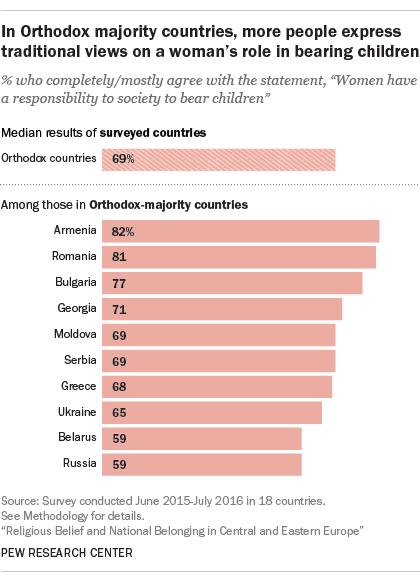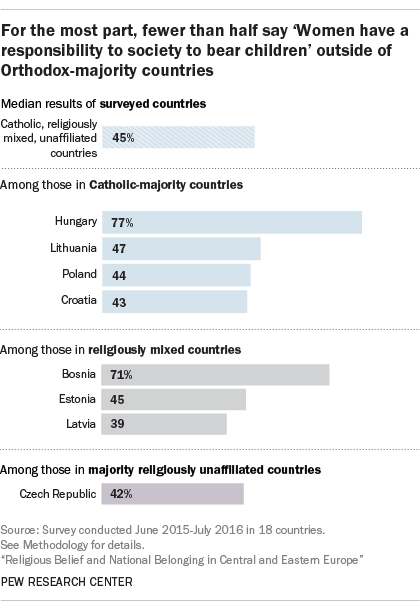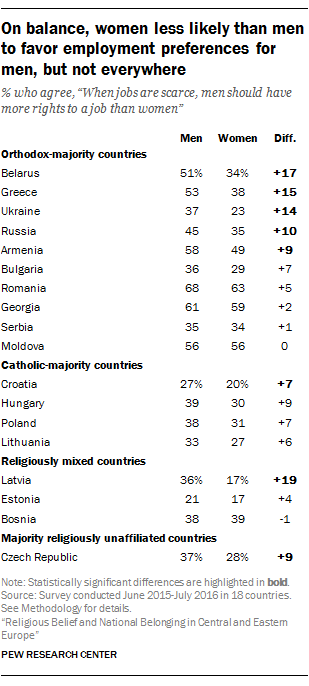
A substantial share of adults in Central and Eastern Europe hold traditional views of the role of women and the family, according to a recent Pew Research Center survey of 18 nations in the region. This is especially true in the 10 countries surveyed with Orthodox Christian majorities.
For instance, majorities of respondents in all 10 of these Orthodox countries agree with the statement, “Women have a responsibility to society to bear children,” including at least three-quarters in Armenia (82%), Romania (81%) and Bulgaria (77%) and about six-in-ten in Russia and Belarus (59% each).

Generally, smaller shares in the eight Catholic-majority, religiously mixed or majority-unaffiliated countries surveyed (Bosnia and Hungary are exceptions) take this position.
Respondents in Orthodox-majority countries also are more likely than those in the other countries to hold conservative gender views on marriage and hiring practices. A median of 42% across the Orthodox-majority countries surveyed say a wife should always obey her husband, compared with only 25% in those countries without an Orthodox majority. Similarly, a median of 44% of respondents in Orthodox-majority countries, versus 31% elsewhere in the region, agree that “when jobs are scarce, men should have more rights to a job than women.”
Predominantly Orthodox populations, however, are not more traditional than others in their views of an ideal marriage. Instead of saying an ideal marriage is one in which the husband works and earns money and the wife looks after the household and children, majorities in every country surveyed prefer a situation in which the husband and wife both work while sharing the household responsibilities.
Since most Orthodox countries in the study were part of the former Soviet Union, this broad acceptance of women in the workforce may reflect historical developments during the Soviet era,

when the rise of communism brought increased opportunities for women to pursue careers in professions previously restricted to men. At the same time, however, historians report that Soviet-era gender equality was more a principle than practice: Men often were preferred to women and women were reduced to lower-level jobs and tended to be paid less. Indeed, people in former Soviet republics are slightly more likely than those elsewhere in the region to say that men should have first rights to employment when jobs are scarce.
Overall, women in Central and Eastern Europe are more likely than men to take progressive positions on gender roles, but this is not always the case. In several countries – including Georgia, Serbia and Moldova – there are no significant gender differences on the question of whether women should have equal access to employment. And while women across much of the region are less likely than men to say that a wife must always obey her husband, women and men in most countries surveyed are equally likely to say that women have a responsibility to society to bear children.

